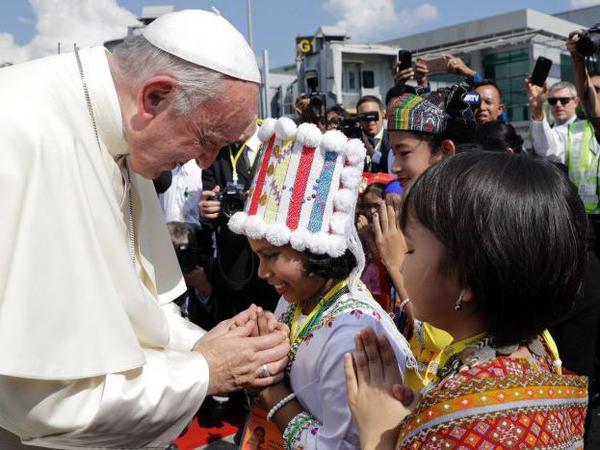He visits the country this week which has been accused by the United Nations of ‘textbook ethnic cleansing’ in their treatment of the mainly-Muslim Rohinga people.
Religious groups and Myanmar leaders will be watching to see if he uses the term ‘Rohinga’ as the Myanmar believe they are a stateless people and prefer to call them ‘Bengalis’.
However, Austen Ivereigh, former director of public affairs for the Archbishop of Westminster and Catholic commentator, explained there is much more significance to the Pope’s visit than just the immediate political crises.
Ivereigh explained: “Really there’s a much deeper issue which is how this nation, this very fledgling democracy, can recognise and incorporate its minorities, and there are many of them, not just the Rohinga but… among them of course are many Christians and Muslims.”
“The meeting with Buddhist leaders is going to be absolutely key to communicate the importance of building a society based on inclusion, tolerance, compassion and recognition of human rights and that’s really the patient, peace-building task of this visit.”
He added: “The real contribution of this is going to be long-term. This is country which is suspiciously outside the world, very closed-in on itself, very, very poor. And this is a Pope who is coming without any strategic or diplomatic or commercial interest to help Myanmar find its place in the world.”
… Read More
—
Click Read More to read the rest of the story from our content source/partners – Premier Christianity News.



